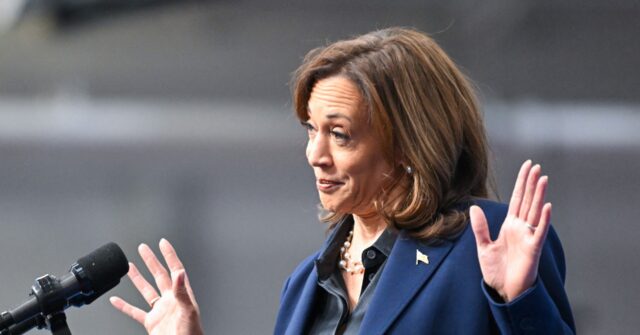In a recent rally in Wisconsin, Vice President Kamala Harris drew attention for her interaction with two pro-life protesters who interrupted her speech by shouting religious phrases like “Christ is King!” and “Jesus is Lord!” While addressing her supporters about expanding abortion access nationwide, Harris responded to the demonstrators with a mocking tone, suggesting they were at the wrong event. Her offhand remark, which received cheers from her audience, included a jab about them possibly confusing the rally with a smaller event associated with former President Donald Trump happening nearby. These reactions highlighted the heightened tensions surrounding the ongoing national debate over abortion rights.
The two protesters, identified as Luke Polaske and Grant Beth from Lacrosse University, confirmed their intent to express their beliefs at the rally, despite the backlash from Harris’s supporters. This incident underscored the deep divisions in American society regarding the issue of abortion and the broader cultural implications surrounding it. Harris’s light-hearted dismissal of the protesters resonated with her audience but further fueled the fire of contention among those who oppose abortion rights. Such exchanges illustrate the polarization between pro-choice and pro-life factions and how political figures utilize these moments for rhetorical advantage.
Harris’s mocking comments came shortly after she declined an invitation to a significant Catholic charity event—the 79th Alfred E. Smith Memorial Foundation Dinner. This annual gathering is known for its bipartisan atmosphere, where political figures have traditionally exchanged humorous remarks and light-hearted jabs. The decision not to attend, especially when every major presidential candidate has done so since the mid-1980s, raised eyebrows and led to speculation about her political strategy. Former President Trump, a polarizing figure in his own right, chose to attend and engage with the audience, potentially highlighting a divide in the approaches to political humor and engagement between the two parties.
In a pre-recorded segment designed to replace her presence at the dinner, Harris was criticized by comedian Jim Gaffigan, who labeled her video as unfunny. This reaction added another layer to the narrative surrounding Harris’s political persona, suggesting that her attempts at humor may not resonate well even within contexts that traditionally lend themselves to comedic relief. Gaffigan’s comments reflect broader challenges that public figures might face when aiming to connect with diverse audiences, particularly on sensitive subjects such as abortion and faith.
In the wake of these events, the broader implications regarding the political atmosphere and the reactions of supporters on both sides were evident. Harris’s attempt to engage with her base by countering the pro-life protesters did not occur in isolation; it also encompassed her overall strategy in fostering a pro-choice agenda amid a complex sociopolitical landscape. Rallying support around abortion rights has become increasingly significant for the Democratic Party, especially in light of recent Supreme Court decisions that have rolled back reproductive rights.
The contrast between Harris’s rally experience and Trump’s engagement at the charity dinner serves to illustrate the different tactics employed by politicians in addressing contentious issues. While Harris embraced a more dismissive approach towards opposition, Trump utilized humor to connect with his audience. This divergence not only shapes public perception of each figure but also contributes to the ongoing cultural conversation about the role of abortion in American politics. Ultimately, these events highlight the intricate dance between faith, political identity, and the struggle for rights, as advocates on both sides of the abortion debate strive for their voices to be heard in an increasingly charged environment.

